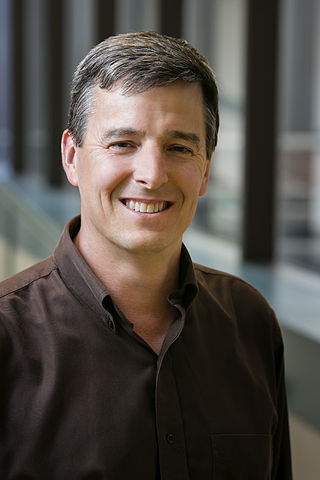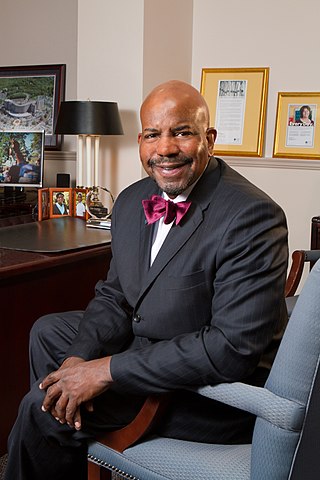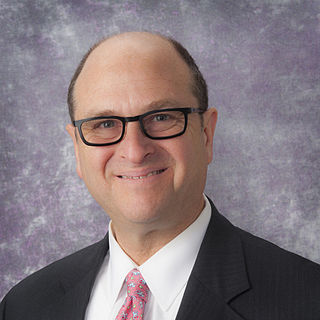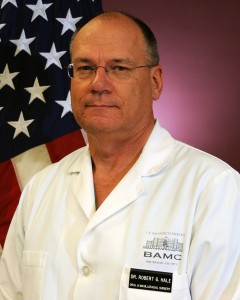
Raphael Carl Lee (born October 29, 1949, in Sumter, South Carolina) is an American surgeon, medical researcher, biomedical engineer, and entrepreneur.

Raphael Carl Lee (born October 29, 1949, in Sumter, South Carolina) is an American surgeon, medical researcher, biomedical engineer, and entrepreneur.
Lee spent his childhood and adolescence in South Carolina, North Carolina and Pennsylvania. During medical school and graduate school, he lived in Philadelphia, Chicago and Boston. Today, he practices surgical, biomechanical and molecular engineering research at the University of Chicago and at the Chicago Electrical Trauma Research Institute. Mostly his research has focused on advancing the care of trauma injuries and scars. Lee is recognized for discovering the application of certain classes of amphiphilic block copolymers to mimic several fundamental protective processes of natural stress proteins in cells that perform cellular self-repair capability following injury. [1] He has also advanced understanding the biophysical mechanisms of tissue injury, particularly those related to electrical shock. Dr. Lee's research team is also recognized for discovering the capability of certain organic blockers of L-Type calcium channel to increase production of enzymes that degrade scar tissue. Some of these agents (i.e. verapamil) are now used globally to treat burn scars. Dr. Lee has also been consistently cited as a highly rated physician and surgeon by regional and national medical ranking magazines.
He currently serves as the Paul S. and Ailene T. Russell Distinguished Service Professor Emeritus at the University of Chicago and having held appointments in the departments of Surgery (Plastic), Medicine (Dermatology), Molecular Engineering, Molecular Medicine, and Organismal Biology and Anatomy. Dr. Lee has served as Director of the University of Chicago's Laboratory for Molecular Regeneration.
Lee graduated from Bishop England High School in Charleston, South Carolina and then studied engineering at the University of South Carolina in Columbia, South Carolina. He completed the electrical engineering curriculum in 1971 with an interest in biophysical applications. He then enrolled in the joint graduate studies program in medicine and engineering curriculum established by Temple University School of Medicine and Drexel University College of Engineering in central Philadelphia. Dr. Lee was elected to the Alpha Omega Alpha honor medical society, Tau Beta Pi engineering honor society and the Sigma Xi honor research society. He completed both M.D. and M.S. degrees in 1975. [2] This was followed by general surgery residency training at the University of Chicago Hospitals in Chicago and then plastic surgery residency training at the Massachusetts General Hospital. While a resident at the University of Chicago, he enrolled in graduate studies at the Massachusetts Institute of Technology. and in Harvard-MIT Division of Health Sciences and Technology doctoral program. He received a Sc.D. in bioelectrical engineering from the Massachusetts Institute of Technology in 1979. [3] He received several significant awards for his research during his surgical residency training including the Schering Scholar Award in 1978 from the American College of Surgeons and MacArthur Prize Fellows Award in 1981 from the John D. and Catherine T. MacArthur Foundation in Chicago. [4]
He returned to Chicago in 1990 where he practices plastic surgery and teaches graduate courses in molecular pathogenesis of disease. He is now an investigator at the University of Chicago [5] | who was elected to the Institute of Medicine of Chicago |, [6] the National Academy of Engineering the International Academy of Medical and Biological Engineering and the American Academy of Arts and Sciences. Dr. Lee has served as President of the American Institute for Medical and Biological Engineering, the Midwestern Association of Plastic Surgeons, the Drexel 100 Society, and the Society for Physical Regulation of Biology and Medicine. He is founder and chairman of RenaCyte BioMolecular Technologies (2005) and Avocet Polymer Technologies (1997). He is affiliated with the Chicago Electrical Trauma Rehabilitation Institute.
Lee's current research focuses on developing methods to assess and improve patient patient fitness for surgery, development of therapies to enhance survival following trauma or radiation, and to integrate control systems science into pharmacology.
Author or coauthor of more than 275 journal publications and book chapters [8]

The University of California, San Francisco (UCSF) is a public land-grant research university in San Francisco, California. It is part of the University of California system and is dedicated entirely to health science and life science. It conducts research and teaching in medical and biological sciences.
A trauma center, or trauma centre, is a hospital equipped and staffed to provide care for patients suffering from major traumatic injuries such as falls, motor vehicle collisions, or gunshot wounds. A trauma center may also refer to an emergency department without the presence of specialized services to care for victims of major trauma.

The Temerty Faculty of Medicine is the medical school of the University of Toronto. Founded in 1843, the faculty is based in Downtown Toronto and is one of Canada's oldest institutions of medical studies, being known for the discovery of insulin, stem cells and the site of the first single and double lung transplants in the world.
Oral and maxillofacial surgery is a surgical specialty focusing on reconstructive surgery of the face, facial trauma surgery, the oral cavity (mouth), head and neck, and jaws, as well as facial cosmetic surgery/facial plastic surgery including cleft lip and cleft palate surgery.

The Edwin Smith Papyrus is an ancient Egyptian medical text, named after Edwin Smith who bought it in 1862, and the oldest known surgical treatise on trauma. From a cited quotation in another text, it may have been known to ancient surgeons as the "Secret Book of the Physician".

Thomas Earl Starzl was an American physician, researcher, and expert on organ transplants. He performed the first human liver transplants, and has often been referred to as "the father of modern transplantation." A documentary, entitled "Burden of Genius," covering the medical and scientific advances spearheaded by Starzl himself, was released to the public in 2017 in a series of screenings. Dr. Starzl also penned his autobiography, "The Puzzle People: Memoirs Of A Transplant Surgeon," which was published in 1992.

John A. Rogers is a physical chemist and a materials scientist. He is currently the Louis Simpson and Kimberly Querrey Professor of Materials Science and Engineering, Biomedical Engineering, and Neurological Surgery at Northwestern University.

Robert Lee "Bobby" Satcher Jr. is an American orthopedic surgeon, chemical engineer, and former NASA astronaut. He participated in two spacewalks during STS-129, accumulating 12 hours and 19 minutes of extravehicular activity. Satcher holds two doctorates and has received numerous awards and honors as a surgeon and engineer.

Cato T. Laurencin FREng SLMH is an American engineer, physician, scientist, innovator and a University Professor of the University of Connecticut.

Anthony "Tony" Guiseppi-Elie is a Trinidad-born, American scientist, engineer, and entrepreneur. He is the President and Sr. Fellow of the American International Institute of Medical Sciences, Engineering and Innovation and the President and Scientific director of ABTECH Scientific, Inc. He is noted for his research and commercial development of biologically inspired and chemically responsive electroconductive hydrogels. Guiseppi-Elie is the Founding Editor-in-Chief of the transdisciplinary journal Bioengineering.

Peter Meong Rhee is an American surgeon, medical professor, and military veteran. During his 24 years in the United States Navy, Rhee served as a battlefield casualty physician in Afghanistan and Iraq.
Robert Edward Gross was an American surgeon and a medical researcher. He performed early work in pediatric heart surgery at Boston Children's Hospital. Gross was president of the American Association for Thoracic Surgery, a member of the National Academy of Sciences and a fellow of the American Academy of Arts and Sciences.
Babak Larian, MD, FACS is the director of the Center for Advanced Head & Neck Surgery in Beverly Hills, Los Angeles. He is also the director of the Head and Neck Cancer Center at Cedars-Sinai. He is also involved at the Cedars-Sinai Thyroid Cancer Center and the Cedars-Sinai Sinus Center. Currently he also serves as the assistant clinical professor of surgery at the David Geffen School of Medicine. Larian is the current medical director of the HELPS International Medical Mission. As a medical author, he has served as a member of the editorial review panel for several peer-reviewed journals. He is the managing partner of the LaPeer Surgery Center, a medical organization specializing in various fields including Plastic & Reconstructive Surgery.

Joel S. Schuman, MD, FACS is Professor of Ophthalmology, the Kenneth L. Roper Endowed Chair, Vice Chair for Research Innovation, co-director of the Glaucoma Service at Wills Eye Hospital, Professor of Biomedical Engineering at Drexel University School of Biomedical Engineering, Science and Health Systems, Collaborative Community of Ophthalmic Imaging (CCOI) president, and American Glaucoma Society (AGS) Foundation advisory board chair. Prior to this he was the Elaine Langone Professor and Vice Chair for Research in the Department of Ophthalmology at NYU Langone Medical Center, NYU Grossman School of Medicine; Professor of Biomedical Engineering and Electrical & Computer Engineering at NYU Tandon School of Engineering and Professor of Neural Science in the Center for Neural Science at NYU College of Arts and Sciences. He chaired the ophthalmology department at NYU Langone Health, NYU Grossman School of Medicine 2016–2020, and was Vice Chair for Ophthalmology Research in the department 2020–2022. Prior to arriving at NYU in 2016, he was Distinguished Professor and Chairman of Ophthalmology, Eye and Ear Foundation Endowed Chair in Ophthalmology, Director of UPMC Eye Center (2003-2016) and before that was at Tufts University 1991–2003, where he was Residency Director (1991-1999) and Glaucoma and Cataract Service Chief (1991-2003). In 1998 he became Professor of Ophthalmology, and Vice Chair in 2001.
Samuel Achilefu is a Nigerian-born scientist and medical researcher who has pioneered both fundamental and applied research in science, engineering, and medicine. Dr. Samuel Achilefu is Professor and Chair of the Department of Biomedical Engineering at the University of Texas Southwestern Medical Center, where he holds the Lyda Hill Distinguished University Chair in Biomedical Engineering. He is also Professor of Radiology and a member of the Simmons Comprehensive Cancer Center. Before joining UT Southwestern, he was the Michel M. Ter-Pogossian Professor of Radiology and Vice Chair for Innovation and Entrepreneurship at the Mallinckrodt Institute of Radiology, Washington University School of Medicine. He held joint appointments as a professor of medicine, biochemistry and molecular biophysics, and biomedical engineering. He also served as the Director of the Washington University Molecular Imaging Center and the privately funded Theranostic Innovation Program and was co-director of the Center for Multiple Myeloma Nanotherapy and co-Leader of the Oncologic Imaging Program of the Alvin J. Siteman Cancer Center at Washington University.

Colonel Robert G. Hale, DDS is an oral and maxillofacial surgeon and former Commander of the US Army Dental and Trauma Research Detachment. Hale lectures worldwide on craniomaxillofacial battle injuries and regenerative medicine. He is a researcher and public advocate for the advancement and benefits of regenerative medicine.
Wei-Ping Andrew Lee is a Taiwanese-American hand surgeon and medical researcher. He is presently the Dean of the University of Texas Southwestern Medical School and Executive Vice President for Academic Affairs and Provost of UT Southwestern Medical Center. Lee focuses on translational research on immune modulation for vascularized composite allotransplantation (VCA) and the implementation of protocols to minimize immunosuppression in hand transplant and other VCA programs.
Farshid Guilak is an American engineer and orthopedic researcher. He is the Mildred B. Simon Professor of Orthopaedic Surgery at Washington University in St. Louis and director of research at Shriners Hospitals for Children. He is also on the faculty of the departments of Biomedical Engineering, Mechanical Engineering & Materials Science, and Developmental Biology at Washington University.